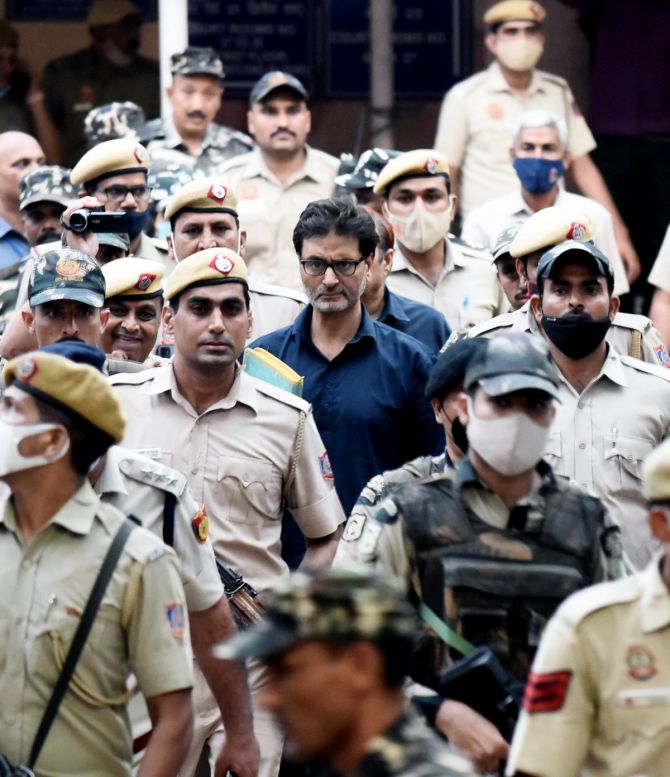A Delhi court on Wednesday rejected Kashmiri separatist leader Yasin Malik's contention that he was following the Gandhian principle of non-violence, saying despite the large scale of violence engulfing the valley, he neither condemned the violence nor withdrew his calendar of protest.

Special judge Praveen Singh also dismissed Malik's contention that he gave up the gun in 1994 and, thereafter, he was recognised as a legitimate political player, observing that ”in my opinion, there was no reformation of this convict”.
”It may be correct that the convict may have given up the gun in the year 1994, but he had never expressed any regret for the violence he had committed prior to the year 1994. It is to be noticed that, when he claimed to have given up the path of violence after the year 1994, the Government of India took it upon its face value and gave him an opportunity to reform and in good faith, tried to engage in a meaningful dialogue with him and, as admitted by him, gave him every platform to express his opinion,” the judge said.
However, as discussed in the order on the charge, the convict did not desist from violence, the court noted.
”Rather, betraying the good intentions of government he took a different path to orchestrate violence in the guise of political struggle. The convict claimed that he had followed the Gandhian principle of non-violence and was spearheading a peaceful non-violent struggle. However, the evidence on the basis of which charges were framed and to which convict has pleaded guilty, speaks otherwise,” the judge said.
The entire movement (led by Malik) was planned to be a violent movement and large-scale violence ensued is a matter of fact, he noted.
”I must observe here that the convict cannot invoke the Mahatma and claim to be his follower because, in Mahatma Gandhi's principles, there was no place for violence, howsoever high the objective might be. It only took one small incident of violence at Chauri Chaura for the Mahatma to call off the entire non-cooperation movement but the convict, despite the large scale of violence engulfing the valley, neither condemned the violence nor withdrew his calendar of protest which had led to the said violence,” the judge said.
"I accordingly find that in the present case, the primary consideration for awarding sentence should be that it should serve as deterrence for those who seek to follow a similar path," the judge said.










